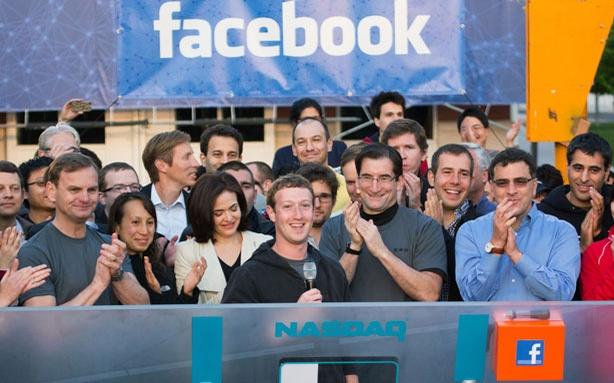
For all the hype and build up that went into the largest technology IPO in history, the company’s stock closed at $38.23 a share (FB, NASDAQ). This is all well and good, until you consider that the stock was priced with much fanfare and hype at $38 a share, earning a meager $0.23 on the day after reaching an opening trading price high of $42.
Although that share price values the 8 year old company at a whopping $105.19 billion, matching food and beverage giant Pepsi Co. while surpassing several other multi-national companies, on lookers failed to see any of the true pandemonium and obscene pricing figures many had expected.
The most eventful part of the trading day was a delay, as NASDAQ dropped the ball on the IPO momentarily, postponing the offering by half an hour from the planned 11:00 a.m. start time. The gaffe, although not commented on by anyone from NASDAQ, was reported by the Wall Street Journal as being caused by an overwhelming volume of orders for the stock (over 70 million) that was beyond the available resources. Similar issues were experiences by large finance websites including Nasdaq.com and etrade.com.
Beyond the potential loss of momentum that the aforementioned delay may have caused, there are several other plausible reasons as to why Facebook’s stock failed to close beyond a 0.6% gain of its selected share price. One conceivable reason is the fact that many potential investors may have elected to take a wait and see approach to determine where the stock would go after its first day of trading. Given that the IPO was unlike anything we had ever seen due to the nature of the company as well as its tremendous scope, no one had any idea as to how the stock would close.
Along similar lines, others either in fear of another technology bubble or simply a case of an over-hyped stock may have simply determined that the revenues and profits that have been generated by the company thus far do not warrant the overall valuation and thus the share price being asked. Facebook find themselves in a quandary of sorts as their users are progressively moving to mobile devices, where the company is least efficient in generating profits and monetizing. This is something that many would have considered before taking the proverbial plunge.
Whatever the reason may be there is no question that Facebook and their IPO represented a historic day and a meteoric rise spanning 8 years. Many people became extremely wealthy due to what transpired. Unfortunately for the masses, the wealth in such situations is made by those who got in at the beginning at the expense of those who purchase at the IPO. Mark Zuckerberg and his $21 billion can be heard thanking you if you listen very carefully.